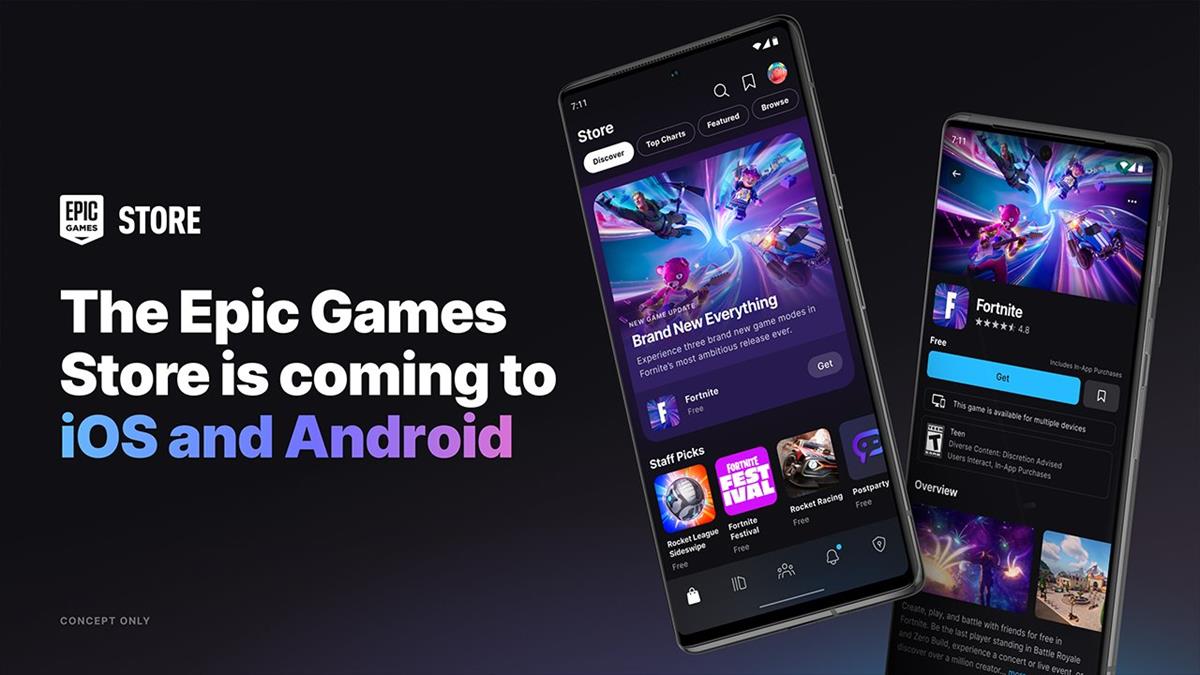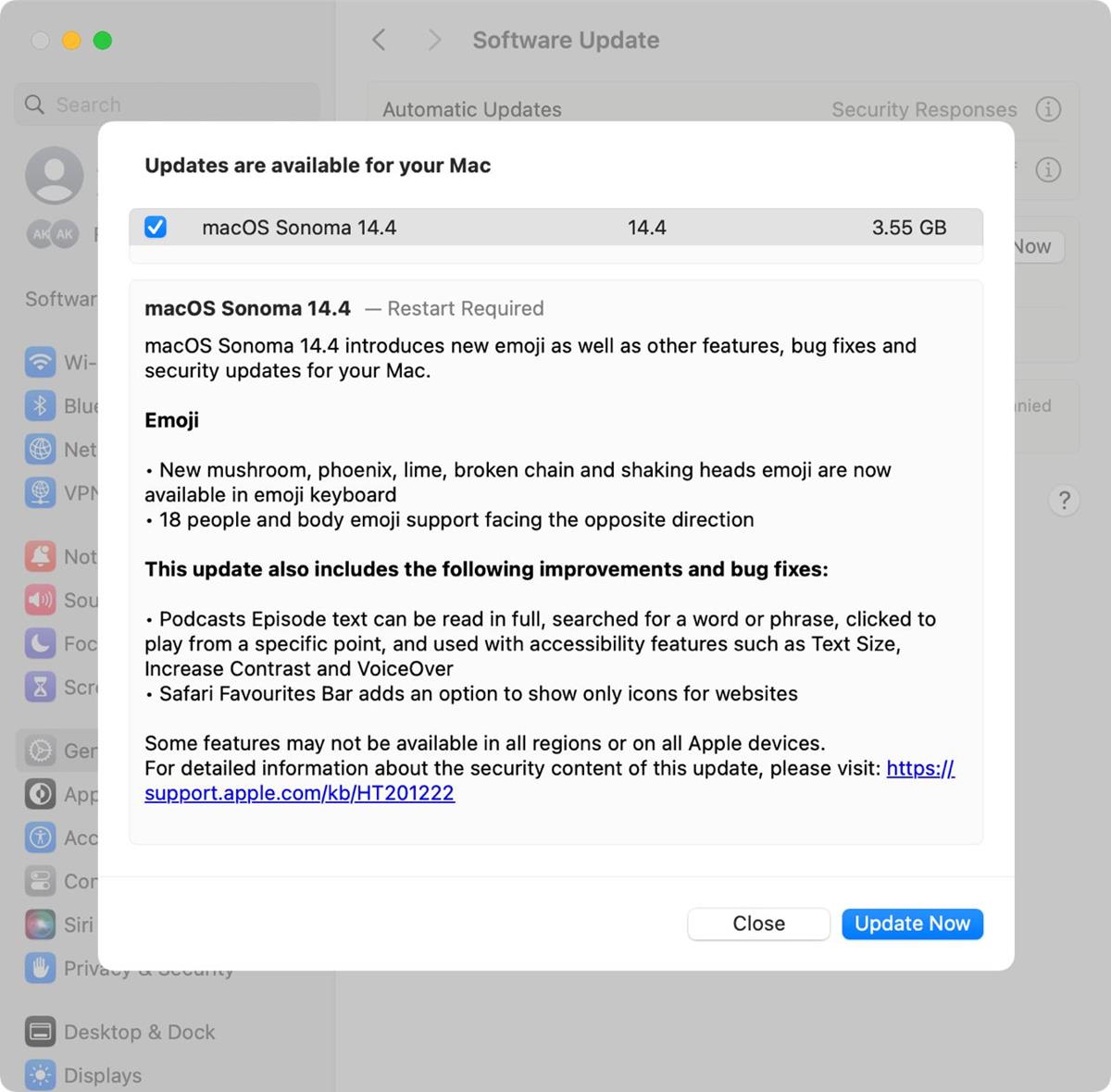Apple wants Mac to become a gaming paradise, but it needs more games to succeed

Apple reportedly wants to attract more gamers to Mac. The company's executives believe that hardware is no longer a handicap for gaming.
Apple wants Mac to become a paradise for gamers
Gordon Keppel, a Mac product marketing manager, told Inverse that Apple's focus on Apple Silicon has been very beneficial for gaming. He noted that modern Macs are fully capable of playing AAA games. Apple's Unified Memory, aka RAM, which is shared between the CPU and GPU, makes a huge difference in the performance. Leland Martin, an Apple software marketing manager, highlighted that it is now easier for game developers to port their games over to Mac, iPhone and iPad. Once a game is available on one of the platforms, it is easy to make them available on the others. Doug Brooks, another member of the Mac product marketing team, spoke about the benefits of Dynamic Caching, i.e. to allocate resources on demand, which can improve the efficiency of the GPU, while providing the maximum frame rates possible.
Earlier this year, Apple introduced the Game Porting Toolkit at WWDC 2023. These tools would allow game developers to bring their Windows games over to macOS, with minimal effort. The games will need to support Metal, which is the graphics API used on Apple Silicon. This can be beneficial for studios who wish to release their games on multiple platforms simultaneously, they can do so on Windows and Mac quickly, providing they optimize the games well.
Apple is betting big on Game Mode, which debuted in macOS 14 Sonoma this year. The mode kicks in automatically, when a game switches to full screen, and optimizes the performance of the CPU and the GPU. These optimizations extend to related components such as Bluetooth accessories, i.e. game controllers, AirPods, etc., and reduce the latency of the wireless devices.
Yes, the hardware on Macs have evolved, and there are millions of Mac users. But the devices are still not good enough for gaming. I have to give credit where credit is due. Apple has done a stellar job with its M Silicon processors. MacBooks are incredibly well-designed and built, and the chips are seriously powerful. The best part is they are power-efficient and deliver great battery life, and they don't overheat, even the fanless models don't. This has been the case since the Apple M1, and it has only gotten better with the M2 and the M3. The new M3 chips support hardware-accelerated ray-tracing, dynamic caching, mesh shading, etc. The displays on Mac are impressive, but I would not call them great. A refresh rate of 60Hz just doesn't make the cut anymore, especially not on devices that cost a $1000 or more. Software-wise, it is a different story. Apple Arcade offers very little of value to a real gamer, and the Mac App Store is abysmal.
Macs are not suitable for gamers
As a gamer, I find the entire topic laughable. Macs are nowhere close to a gaming device. Apple has some serious work to do if it wants to make an impression in the industry. macOS simply lacks support for the majority of games. Sure, we got No Man's Sky, Death Stranding, Resident Evil Village, etc. on macOS. But, these are not new games, they are all several years old, i.e. available on Windows for a long time. No one wants to wait that long to play games. People are willing to throw their money at pre-orders, they are impatient. Even the Microsoft Store has better games, and I'm not even joking. Some of the Mac ports that were released recently are exclusive to the App Store, which doesn't make sense. Apple may have sponsored the Mac version, but why not release the games on Steam? You cannot build an audience without opening your doors, the App Store and its walled garden are not the answer. Killing support for 32-bit apps and games has proven detrimental too. What about the availability of new titles? Games like the recent Call of Duty, Diablo 4 are notable examples that are not available on macOS.
Why is that? Well, Mac has never been a gaming platform. That's what Apple wants to change, but it's difficult to get gamers on board. The biggest problem with Macs is that they are incredibly expensive, and Apple continues to sell base models with a ridiculous 8 GB of RAM, and 256 GB of Storage. This is completely unacceptable in today's standards. Of course, the Cupertino company may proclaim 8GB on Macs is equal to 16GB on other platforms. No it's not, that's silly.
Limited storage can be crippling. Modern games are big, and I mean they are huge. A lot of games are 100 GB in size or more. While you can get an external SSD to have the games on, you cannot do anything to upgrade the RAM. So, if you have the money you should always look to get a Mac with 16 GB of RAM or more, or deal with buyer's remorse.
Windows is still the gaming king
See, if someone is interested in games, I don't think getting a MacBook is a good idea at all. There are tons of different options out there that might suit your needs such as Lenovo Legion, ASUS ROG, HP Omen. For those who are on a tight budget, you can look at the more wallet-friendly options such as Lenovo LOQ, ASUS TUF, and HP Victus. Many of these laptops cost somewhere in the range of $1000, depending on your region, discounts, etc. They are all great choices because these computers have been designed for gaming, have displays with high refresh rates, powerful GPUs, and above all else, they are often upgradable. You could install more RAM or storage quite easily on these laptops. They run on Windows 10 or 11, so you don't have to wait for ages for a macOS port to arrive.
Most gaming laptops have an NVIDIA RTX GPU, which is superior to what the rest of the competition can offer. With a decent mobile GPU, you can enable ray tracing, DLSS upscaling in games that support the features, to enhance your gaming experience. Connect them to an external monitor, and you have a proper gaming set up. I'm not quite sure Apple can match the performance, AMD has tried it with FSR, but it's been a rather subpar experience so far. Intel has had better luck with XESS. No DLSS, or Vulkan API is a big no-no for modern gaming. Linux is much better in comparison, it has found a huge fan base among Steam Deck users, which runs on a custom version called SteamOS.
TL;dr if you want to play games? Build a PC, or get a decent gaming laptop, and stay away from Mac. On the other hand, if you want to use it for work, school, browsing, casual usage, Macs are great for those tasks. Don't get me wrong, I love my Mac, just not for gaming. I wish it was better, hopefully game developers will pick up the Game Porting Toolkit and bring their titles to macOS. But this change won't happen overnight, it could take several years to improve. Everything hinges on the availability of games on macOS.






















Mac is the North Korea of operating systems. A perfect paradise for DRM. The big Publishers would love it. If given the choice to leave, the users would happily go back to their walled garden even if you incentivized them to use a more open system.
Mac needs more software. Period. The way Windows is going I am finally willing to give it up. I’d have gone with an Apple computer a long while ago, but Windows has all the great software.
PC gaming is popular because you can either build your own spec’d PC to your liking or have several choices of pre built. Mac’s are so closed off now even worse than with Intel CPU’s that no gaming developer would even consider supporting Mac’s. It’s just a different platform with no real projected market share to go after. Not a single Mac today has any ability to upgrade anything down the road. Apple still focuses on creators over any sort of gaming angle.
It sounds like Apple have lost the plot here.
While not something I’m keen on personally because I do not like subscriptions, it’s clear that the future of gaming is going to be streaming from remote servers. In this almost certain future, the device used doesn’t really matter, as all the storage and heavy lifting is done by the server. All that’s needed at the user’s end is a reasonably fast and reliable internet connection.
For the majority, it’s likely a lot easier and more cost effective to pay a subscription, than needing to keep buying the latest and greatest GPU or console every few years. It’s also going to open up gaming to a much larger demographic of new people if they can just play directly on their TV or any other low-power device.
Apple should really be looking at how things are going to be in ten years time, not how things are now. Or perhaps the marketing manager realises this and is concerned that Apple will have no way of locking people into it’s ecosystem – hence trying to get game developers to develop specifically for Mac. However, I’m not sure how that would make sense for a game developer, especially if their Xbox and Windows games will already play of a server with very little additional effort and cost required.
Apple could potentially offer their own game streaming service using someone else’s hardware – which would make more sense – but it’s going to be tough. When gaming shifts to streaming in a more mainstream way, it’s going to be a lot easier for companies who operate subscription TV services to offer gaming subscriptions with it. So the dominant one or two TV streaming services are likely going to be the biggest winners. I.E. If a parent is already subscribed to something like Netflix, then adding a gaming subscription akin to Xbox Game Pass Ultimate (either for themselves or their children) would be pretty frictionless. The Competition and Markets Authorities should probably start their engines now, because things are going to get really messy in corporate game streaming.
> it’s clear that the future of gaming is going to be streaming from remote servers
And you have a working solution to the input lag problem?
Faster-Than-Light connections? Data-centers in every big city?
Google said exactly the same thing you’re saying now, and where is google’s subscription gaming service now?
It’s not a Netflix movie, where the delay can be compensated by simply buffering. In the case of games, you get latency in control.
Of course, some games may well exist in such a paradigm. Something like HoMM3. But with very popular FPS and other things there are big problems and so far no one has come up with any solution except building data centers near consumers (in fact – in the same city).
And that’s if you forget about how many people in the world have unstable or not fast connections, even living in first world countries (not to mention all the others). Which effectively cuts them off from such a service, reducing both the reach of the service and its potential profit, and in the case of MMOs (CSGO, LoL, etc. and so on) – and the number of active players.
A subscription service by its very subscription nature cuts off many potential players.
It needs to not charge $1600 for a (non-upgradeable!) laptop with 8GB of memory in 2023.
Seriously a lot of users have dumped Microsoft for Mac already; most of the people I know, in fact. But the gamers are generally stuck. You have more chance at making Linux into a viable game platform than you do a Mac. And that’s why this is the direction things are going now. At least the PC hardware isn’t against you unless you buy the most expensive model, to support expandability. Not that I’m complaining, because I’m a Linux user and I genuinely appreciate cheap hardware and the ability to customize stuff any way I want to on a free OS.
the main reason why windows is good for gaming is because customisation. you can mod the software, the game, the hardware, the gpu, the ram, etc which is lack on mac system
Exactly, it will never happen as long as Apple is a walled garden full of toy products. Not open, the OS does not run on non-Apple devices, it is difficult to replace any components, and it is soldered on Chinese junk at a premium price.
I used to think like iCloudSheep, until I bought a macbook pro thanks to windows 11 and no laptop being capable of lasting more than 2 hours on battery on the road.
Best decision I made for my business. Brew + raycast + terminal..windows could only dream of real tools.